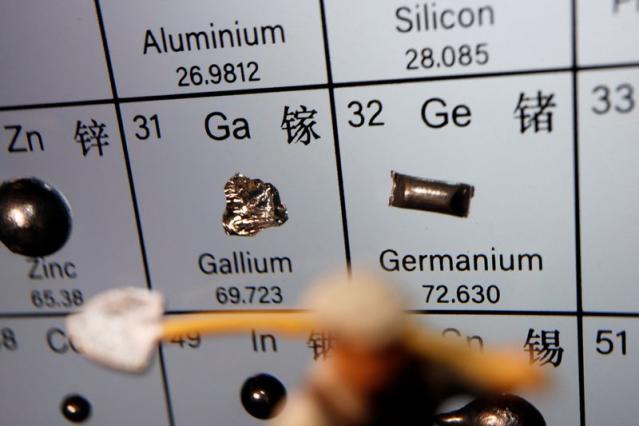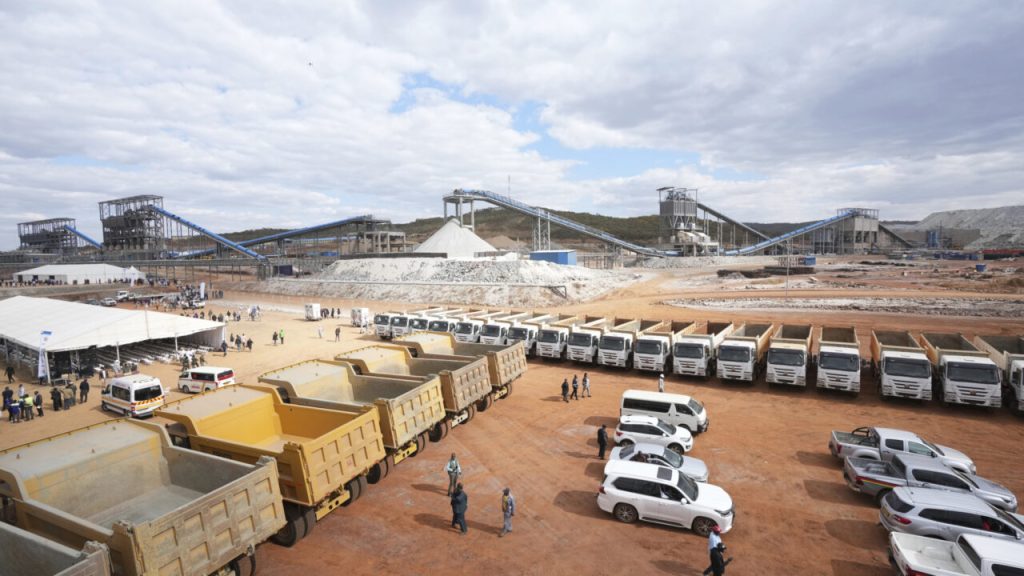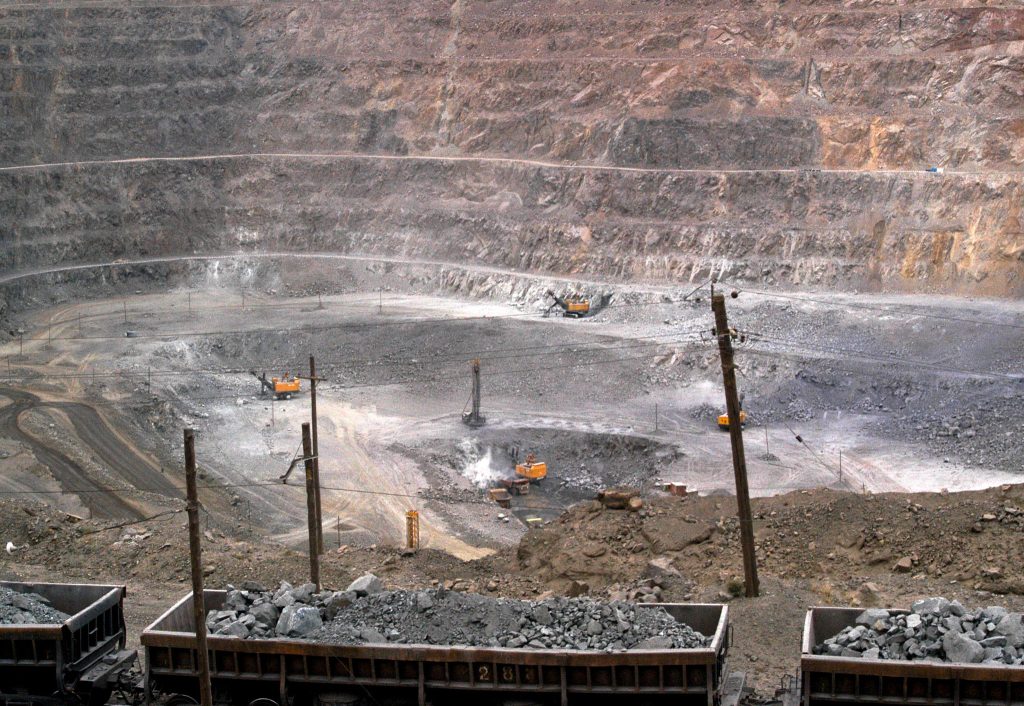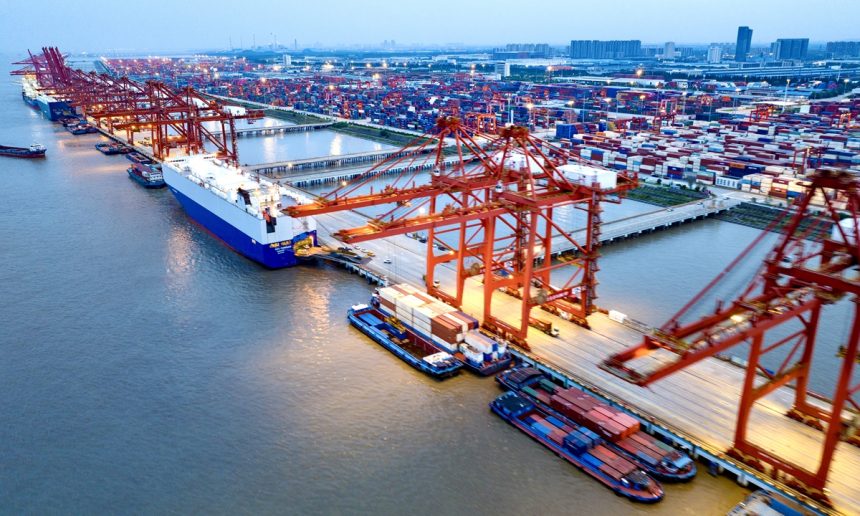In a deepening trade rift between the world’s two largest economies, China has announced a ban on the export of critical minerals—gallium, germanium, and antimony to the United States.
These materials, vital for military and high-tech applications, are now subject to stricter export controls, further intensifying the escalating trade tensions following recent U.S. actions targeting China’s semiconductor industry.
Stating national security concerns, the Chinese Commerce Ministry issued a directive on dual-use items that serve both civilian and military purposes. The new rules tighten existing export restrictions and explicitly target the U.S. market.
Gallium and germanium are essential for semiconductors, infrared technology, fiber optics, and solar panels, while antimony is a critical component in ammunition, infrared missiles, and batteries.

“In principle, the export of gallium, germanium, antimony, and superhard materials to the United States shall not be permitted,” the ministry stated. The restrictions also impose stricter reviews on the end-usage of graphite exports, a key material in electric vehicle batteries.
The move is seen as a direct response to the U.S.’s latest crackdown on China’s chip sector, which includes restrictions on technology exports to 140 Chinese companies. It highlights China’s strategic leverage over global supply chains, particularly for materials where it dominates production.
READ ALSO: South Korea Declares Emergency Martial Law Amid Political Crisis
China accounts for nearly 60% of the world’s refined germanium output, 98.8% of refined gallium production, and 48% of global antimony mining. With these restrictions, Beijing is flexing its control over resources critical to U.S. military and technological industries.
The timing of the ban coincides with Washington’s increasing measures to “de-risk” and diversify supply chains away from China. A White House spokesperson responded to the move, emphasizing the importance of building resilient supply chains with global allies.

“These new controls underscore the urgency of reducing dependence on China for critical minerals,” the spokesperson said.
The ban has also sparked concern among industry experts that Beijing might extend restrictions to other key minerals like nickel and cobalt, which are critical for batteries and renewable energy technologies.
READ ALSO: Israel Warns of Escalation of War Amid Fragile Hezbollah Truce
China’s decision reflects its growing frustration with U.S. policies targeting its semiconductor and technology sectors. Experts like Peter Arkell, chairman of the Global Mining Association of China, view the ban as an inevitable response to increasing U.S. restrictions.
“It’s a trade war with no winners,” Arkell said, pointing to the ongoing tit-for-tat measures between the two nations.
The announcement has sent shockwaves through global markets. Prices for antimony trioxide in Rotterdam have soared 228% this year, reflecting the tightening supply. Companies like Perpetua Resources, which is developing an antimony mine in Idaho with U.S. government support, view the ban as a wake-up call.

“China is weaponizing access to minerals critical for the U.S. military and technology sectors,” said Perpetua CEO Jon Cherry. “It’s time to end reliance on China and secure domestic sources.”
United States Antimony, which refines the metal in Montana, expressed optimism that higher prices might incentivize domestic production. However, the company acknowledged that developing new mines would take time.
READ ALSO: Asian and Europe Rally Amid Tech Gains
China’s dominance in critical minerals and its willingness to leverage that control underscores the fragility of global supply chains. The ban has fueled concerns about long-term access to these materials and the urgency for the U.S. and its allies to secure alternative sources.
The situation highlights the broader risks of over-reliance on any single supplier, particularly for materials essential to national security and technological innovation.

As trade tensions escalate, both nations face increasing pressure to secure their economic and strategic interests. While the U.S. may accelerate efforts to diversify its supply chains, China’s latest move serves as a stark reminder of the interconnectedness—and vulnerabilities—of global trade.
Ultimately, this ongoing standoff signals a challenging path ahead for both countries. In a world where supply chains are deeply interwoven, the fallout from such disputes could ripple across industries and economies worldwide. For now, the race to secure critical minerals is intensifying, and the stakes have never been higher.

